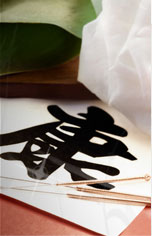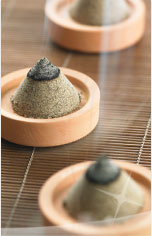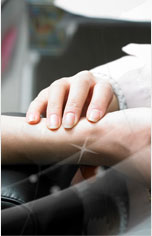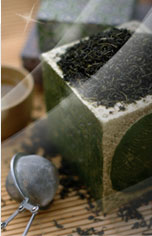| |
Acupuncture and Chinese Herbs for Headaches / Migraines |
|
Nearly everyone will suffer a headache at some point. According to the National Headache Foundation, over 50 million Americans suffer from chronic headaches and 28 million of these suffering from migraines. Whether you have minor head pain or severe migraines, they can affect every aspect of the life and make you looking for relief.
Medications remain the mainstay of treatment, which gives fast relief. Unfortunately, common headache medications do not address the root cause(s), and they can cause side effects when used over long periods of time.
Acupuncture and Traditional Chinese Medicine (TCM) can offer a safe and effective relief without the side effects which prescription and over-the-counter medications can cause. Acupuncture and TCM not only relieve pain but also address the underlying cause(s) of headaches.
|
| |
Headaches / Migraines in TCM
In Traditional Chinese Medicine (TCM), headaches and migraines can be caused by interrupted flow of Qi (the vital energy of the body) and Blood. When headaches are caused by stagnation of Qi and Blood, they tend to be more severe, sometimes debilitating. The more substantial the obstruction, the more intense the headache. When headaches are caused by insufficient Qi and Blood reaching the head, they tend to be mild to moderate, and often associated with mental and physical fatigue.
The factors that may interrupt the smooth flow of Qi and Blood include physical trauma, improper diet, emotional imbalances, excessive work, lack of activities, and body constitution.
The specific triggers, location of pain, nature of pain, pattern of onset, and accompanying symptoms can be used to specify which meridians (the pathway where Qi flows through) or Zang Fu organs are affected. For example, headaches on the sides of the head or eyes can be caused by impaired Gallbladder function; headaches on the top of the head are related to Liver and Kidney function; and headaches in the forehead can indicate that Stomach function is out of balance. Headaches before menstruation are usually related to Liver function, while headaches after eating indicate that the Stomach is not functioning correctly because of insufficient Qi and Blood. Headaches described as “heavy feelings” refers to accumulation of Damp or Phlegm; headaches reported as “deep inside” or “hurting the brain” usually means impaired Kidney function; “distending and throbbing” headaches are usually related to Liver function; and headaches noted as “like a nail on a spot” indicate Blood stasis.
NOTE: The names of organs are capitalized when referring to the entire, functional organ systems in TCM perspective: Liver, Blood, etc. The names of organs are lower-cased when referring to the distinct, biomedical organs: liver, blood, etc.
|
| |

TCM Treatment for Headaches / Migraines
The primary goal of Traditional Chinese Medicine (TCM) is treating the root cause(s) of headaches and migraines, not just getting the patient out of pain. Treatment for acute headaches aims at immediate relief by regulating the flow Qi and Blood and dispersing stagnation. Between episodes of headaches/migraines, the treatment focuses on treating the underlying condition. Acupuncture has significant and rapid effects during acute attacks of headaches, but it should work alongside herbal remedies to obtain a sustained result.
Acupuncture for Headaches / Migraines
Acupuncture involves insertion of fine, sterile needles into specific points on the body, which can alter various biochemical and physiological conditions in order to achieve the desired effect. During the acute attack of headaches, acupuncture points are selected from those that influence the location of the headache. In between headaches, different acupuncture points will be used to treat the underling imbalance(s) causing headaches.
The length, number and frequency of treatments will vary. Typical treatments last from 15 to 30 minutes, with the patient being treated 1 to 3 times a week. Some symptoms may be relieved after the first treatment, while more severe or chronic ailments often require multiple treatments.
|
|
The greatest advantage of acupuncture over Western medicine is that acupuncture is virtually harmless. Some medications may have serious side effects and can actually cause rebound headaches (headaches that occur after the medication has worn off). Acupuncture can help patients decrease the amount of medication. In many cases, patients can get off of their medication completely and remain headache-free after acupuncture treatments.
There have been many controlled trials of acupuncture for headaches and migraines. The results of the latest reviews are quite consistent: acupuncture appears to be at least as effective as prophylactic drug therapy, with few contraindications or unpleasant side effects (Linde 2009, Wang 2008, Sun 2008, Scott 2008). Acupuncture has been found to be cost effective (Witt 2008; Wonderling 2004). Acupuncture can prevent and alleviate symptoms in acute attacks of migraines (Li 2009). There is preliminary qualitative evidence from patients that acupuncture can increase coping mechanisms and relieve migraine symptoms (Rutberg 2009).1
|
|
Lifestyle Advice
to Prevent Headaches
- Get enough sleep
- Avoid physical or mental fatigue
- Avoid caffeine and alcohol
- Avoid any triggers that cause your headaches
- Try relaxation techniques, such as meditation, deep breathing, or Yoga to manage stress
|
Chinese Herbal Medicine for Headaches / Migraines
Chinese herbs are often used to enhance the effect of acupuncture on treating headaches and migraines. As a general rule, headaches due to insufficient Qi and Blood reaching the head respond best to herbal therapy.
Herbal formulas are prescribed for each patient based on the characteristics of pain, specific triggers, aggravating and alleviating factors, and overall health. The individual Chinese herbs most commonly used in the herbal formulas for headaches and migraines are:
- Chuan Xiong (Chuanxiong Rhizoma)Chuan Xiong is the premier herb for headaches and can be used for all types of headache.
- Bai Zhi (Angelicae dahuricae Radix)Bai Zhi is commonly used for frontal and temporal headaches, facial pain, and toothache. It is especially good when there is sinus congestion.
- Cang Er Zi (Xanthii Fructus)Cang Er Zi is good for frontal headaches, especially those associated with sinus congestion.
- Gao Ben (Ligustici Rhizoma)Gao Ben is often used for occipital and vertical headaches and headache from external invasion of pathogens.
- Qiang Huo (Notopterygii Rhizoma)Qiang Huo is usually used for headaches on the base of the head and the neck.
- Ge Gen (Puerariae Radix)Ge Gen is for pain in the neck and the base of the head.
- Man Jing Zi (Vitivis Fructus)Man Jing Zi is often used for frontal and temporal headache and eye pain.
- Ju Hua (Chrysanthemi Flos)Ju Hua targets the eyes, forehead and temporal area.
- Chai Hu (Bupleuri Radix)Chai Hu is commonly used for temporal and vertex headaches.
- Sheng Ma (Cimicifugae Rhizoma)Sheng Ma is used for frontal headaches.
- Tian Ma (Gastrodiae Rhizoma)Tian Ma is an important herb for temporal, vertex and entire cranium headaches.
- Gou Teng (Unicariae Ramulus cum Uncis)Gou Teng is for temporal and vertex headaches. It is commonly used when there is spasm and tension in the neck.
- Bai Ji Li (Tribuli Fructus)Bai Ji Li is for temporal headaches, especially when there is dizziness or redness and pain in the eyes.
- Shi Jue Ming (Haliotidis Concha)Shi Jue Ming is often used from temporal and vertex headaches. It is good when there are visual disturbances and aura.
- Wu Gong (Scolopendra) and Quan Xie (Scorpio)Wu Gong and Quan Xie are used together for relatively severe, stubborn headaches or neuralgic pain.
- Di Long (Lumbricus)Di Long is often used for stubborn headaches and loss of function from Blood Stasis.
- Bai Fu Zi (Typjonii Rhizoma)Bai Fu Zi is used for stubborn headaches and facial pain.
|
|
|






